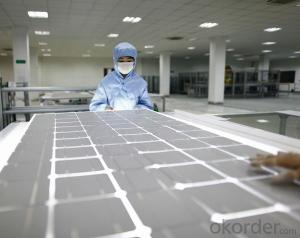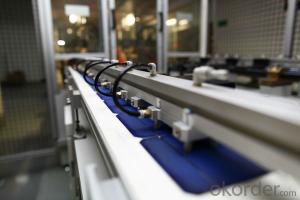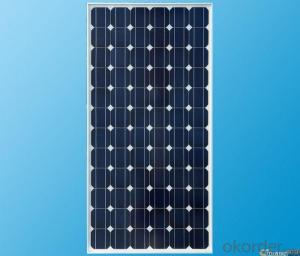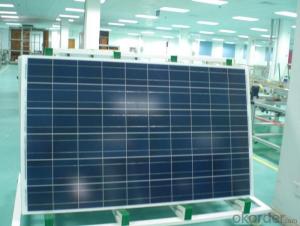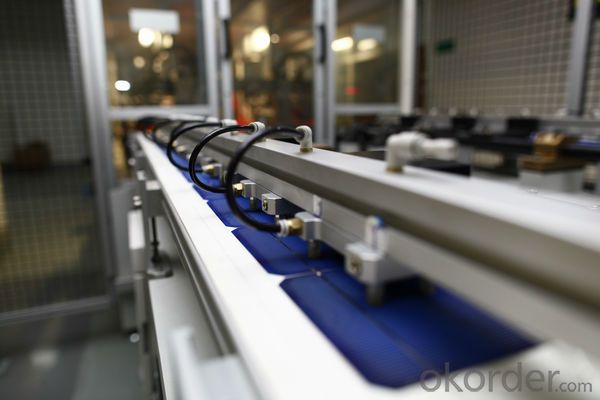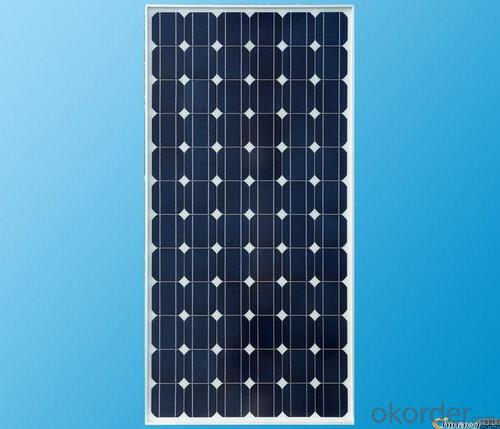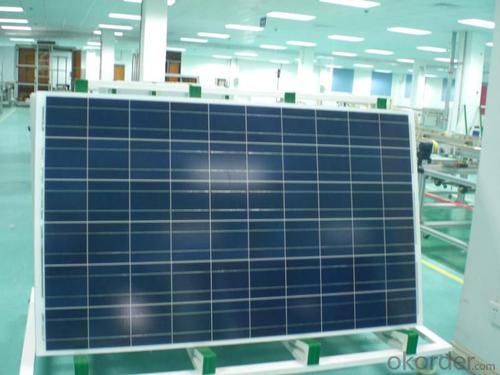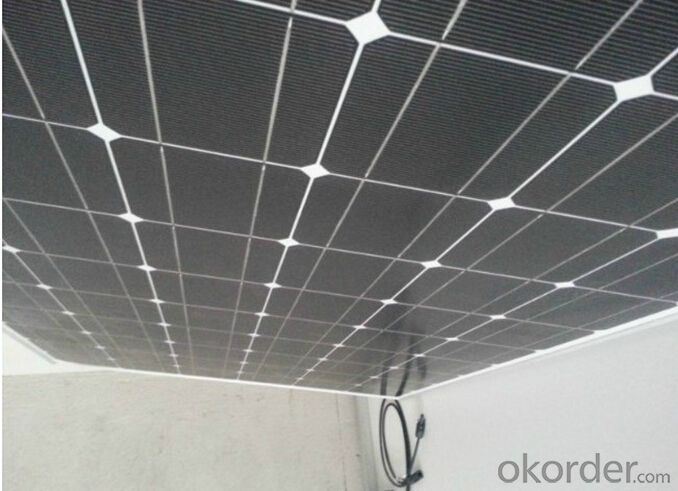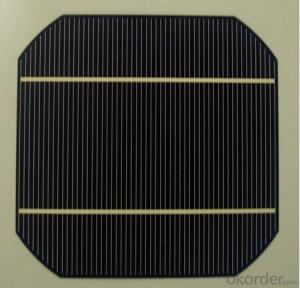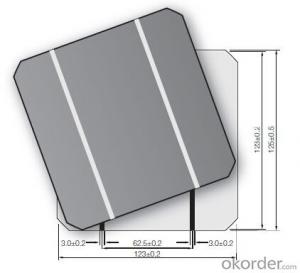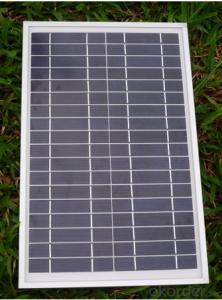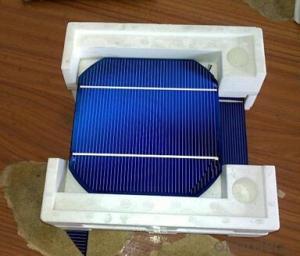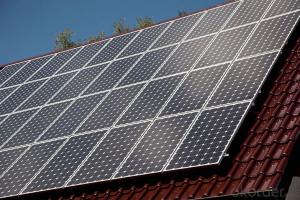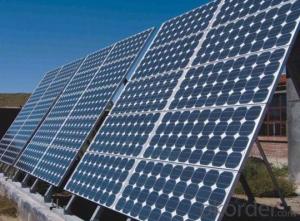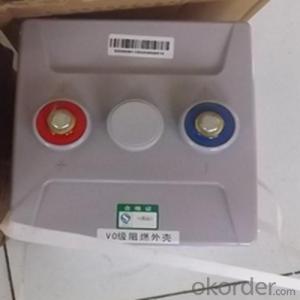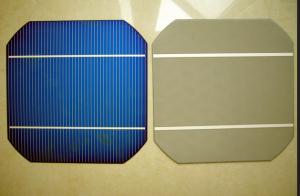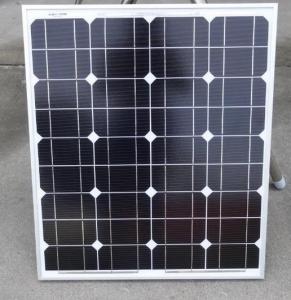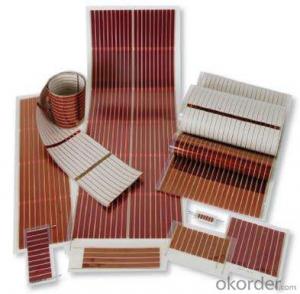50W Mini PV Silicon Nanowire Solar Module 156 Solar Cell Solar Energy Lighting
- Loading Port:
- Shanghai
- Payment Terms:
- TT OR LC
- Min Order Qty:
- 11 watt
- Supply Capability:
- 1111111 watt/month
OKorder Service Pledge
OKorder Financial Service
You Might Also Like
1.Structure of Solar Module Description
The solar module is an off-gird solar power generator, designed to provide stable and reliable electricity to homes and communities without access to grid electricity or to those regions where are short of power or even without power. The solar module is convenient to move, easy to set-up with reliable performance, making it ideal for situations where emergency power is required. It is an ideal & reliable energy source for a wide variety of applications, ranging from lighting , radios, fans ,televisions ,computers ,refrigerator. The USB port is compatible with all 5V-USB charged devices. It can also act as a back-up power source during emergency situations.
2.Main Features of the Solar Module
1).High conversion efficiencies resulting in superior power output performance.
2).Outstanding power output even in low light or high temperature conditions
3).Optimized design for ease of soldering and lamination
4).Long-term stability,reliability and performance
3.Solar Module Images
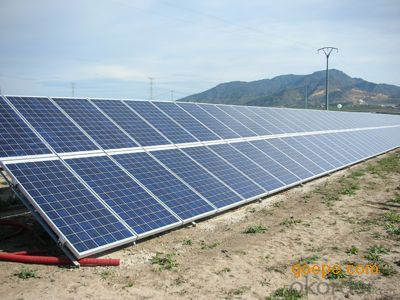
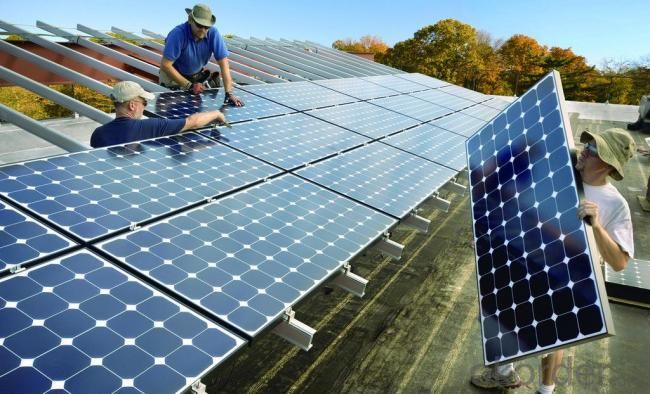
4.Solar Module Specification
Model | XMH- P50 |
Max. Power(Pm) | 50W |
Open Circuit Voltage (Voc) | 17.2V |
Max. Power Voltage (Vmp) | 21.3V |
| 2.91A |
| 3.4A |
| 715V |
| Poly crystalline 156*156 |
Dimensions(mm) | 650X666X35MM |
| 5.5kg |
| 3.2mm Low iron tempered Glass |
| irradiance 1000W/square meters, AM=1.5 cell temperature 25℃ |
5.FAQ of Solar Module
1). Q: Are you a factory or trading company?
A: We are a factory.
2). Q: Where is your factory located? How can I visit there?
A: Our factory is located in Jiangyin, Jiangsu, China, near Shanghai. You are warmly welcomed to visit us!
3). Q: How can I get some samples?
A: Please connect me for samples
4). Q: Can the price be cheaper?
A: Of course, you will be offered a good discount for big amount.
- Q: Can solar cells be used at night?
- No, solar cells cannot be used at night as they rely on sunlight to generate electricity.
- Q: What is the role of fuses in solar cell systems?
- The role of fuses in solar cell systems is to protect the system from overcurrent conditions. Fuses are designed to break the electrical circuit when excessive current is detected, preventing damage to the solar cells, wiring, and other components. By acting as a safety measure, fuses help maintain the overall integrity and performance of the solar cell system.
- Q: Can solar cells be used in residential communities?
- Yes, solar cells can be used in residential communities. In fact, they are increasingly being adopted by homeowners as a sustainable and cost-effective alternative to traditional energy sources. Solar panels can be installed on rooftops or in open spaces within residential areas, harnessing sunlight to generate electricity for individual households or even for the entire community. This not only helps reduce reliance on fossil fuels but also enables homeowners to save on energy costs in the long run.
- Q: Can solar cells be used for hydrogen production?
- Yes, solar cells can be used for hydrogen production through a process called photoelectrochemical water splitting. This involves using the energy from sunlight to split water molecules into hydrogen and oxygen gases, with the hydrogen gas being stored for later use as an energy source.
- Q: How efficient are solar cells?
- Solar cells are highly efficient in converting sunlight into electricity, with the most advanced ones achieving an efficiency of around 20-25%. However, the average efficiency of commercially available solar panels is typically around 15-20%.
- Q: Where can I buy solar cells on sale but still good quality ?
- We are a solar cell manufacturer based in China, and we sell very good quality solar cells.
- Q: How can I understand the working principles of solar cells?
- As a complicated science which is quite new, you will spend lot of time in the research and analysis of solar cells.
- Q: What is the expected degradation rate of a solar cell?
- The expected degradation rate of a solar cell can vary depending on various factors such as the type of solar cell, the quality of materials used, the environmental conditions, and the maintenance practices. On average, however, most solar cells experience a degradation rate of around 0.5% to 1% per year. This means that the efficiency of the solar cell decreases by this percentage over time. Proper maintenance and regular cleaning can help mitigate degradation and extend the lifespan of a solar cell.
- Q: Can solar cells be used in weather monitoring systems?
- Yes, solar cells can be used in weather monitoring systems. Solar cells can generate electricity from sunlight, which can be used to power various components of weather monitoring systems such as sensors, data loggers, and communication devices. This allows for remote and autonomous operation of these systems, making solar cells an ideal and sustainable power source for weather monitoring applications.
- Q: Can solar cells be used on spacecraft?
- Yes, solar cells can be used on spacecraft. In fact, solar cells are commonly used to provide power to satellites and space probes. They convert sunlight into electricity, which is then used to power various systems and instruments onboard the spacecraft.
Send your message to us
50W Mini PV Silicon Nanowire Solar Module 156 Solar Cell Solar Energy Lighting
- Loading Port:
- Shanghai
- Payment Terms:
- TT OR LC
- Min Order Qty:
- 11 watt
- Supply Capability:
- 1111111 watt/month
OKorder Service Pledge
OKorder Financial Service
Similar products
Hot products
Hot Searches
Related keywords
